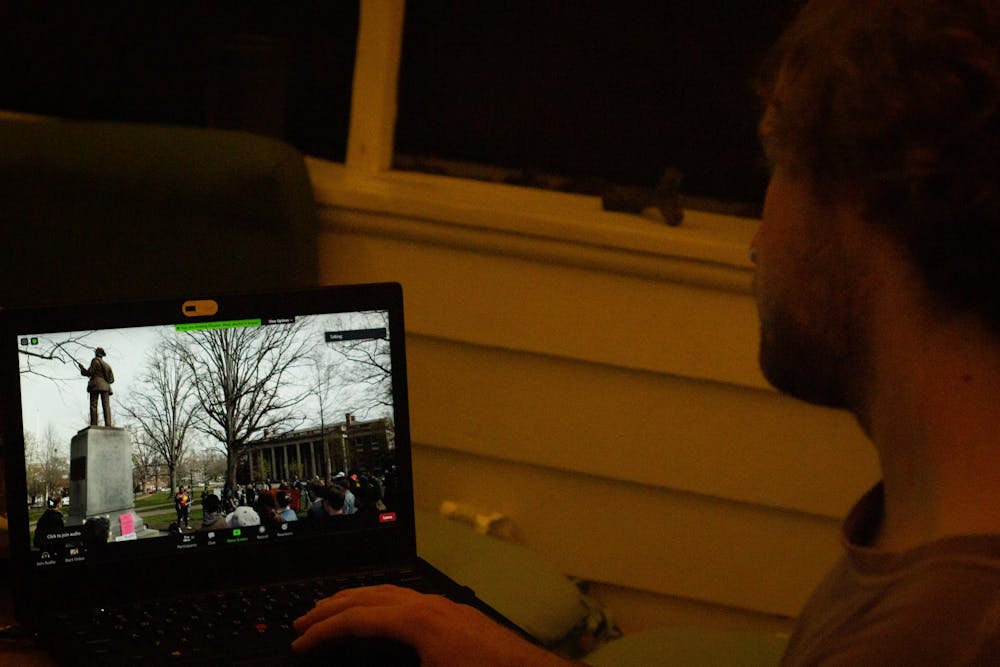The Confederate statue Silent Sam may be gone from McCorkle Place — but conversations about systemic racism on UNC's campus are not.
The Campus Y hosted a virtual screening of the documentary film “Silence Sam” Wednesday, followed by a panel about the future of anti-racist activism at UNC. The film, created by UNC Hussman School of Journalism and Media alumni, follows the student activism that led up to the toppling and removal of Confederate monument Silent Sam from UNC’s campus.
At the event, Campus Y co-directors of outreach Eleanor Murray and Kalley Huang moderated a discussion that featured Black Student Movement Vice President Julia Clark, co-chairperson of UNC’s Black Congress Tamia Sanders and filmmaker Abby Igoe. Panelists discussed the prevalence of white supremacy on campus, the importance of passing down accurate knowledge and the difference between performative and productive activism.
“Even after Silent Sam came down, we saw the remnants of Silent Sam still popping up on our campus,” Clark said.
During the panel, both Clark and Sanders said that even despite Silent Sam's removal from campus, then-Chancellor Carol Folt's resignation from the University and David Perry's installation as UNC's chief of police — the issues of white supremacy on campus are not resolved.
“Change in leadership does not change a foundation,” Clark said.
Panelists discussed ways people can make meaningful change.
Sanders said that people need to continue asking questions and participating in discussions, even if they are difficult, and that one conversation is not ample action.
“They’ll come to events and feel like that’s enough and walk away with that on their shoulder,” Sanders said. “But after this, people who are experiencing that marginalization have to live with that.”




